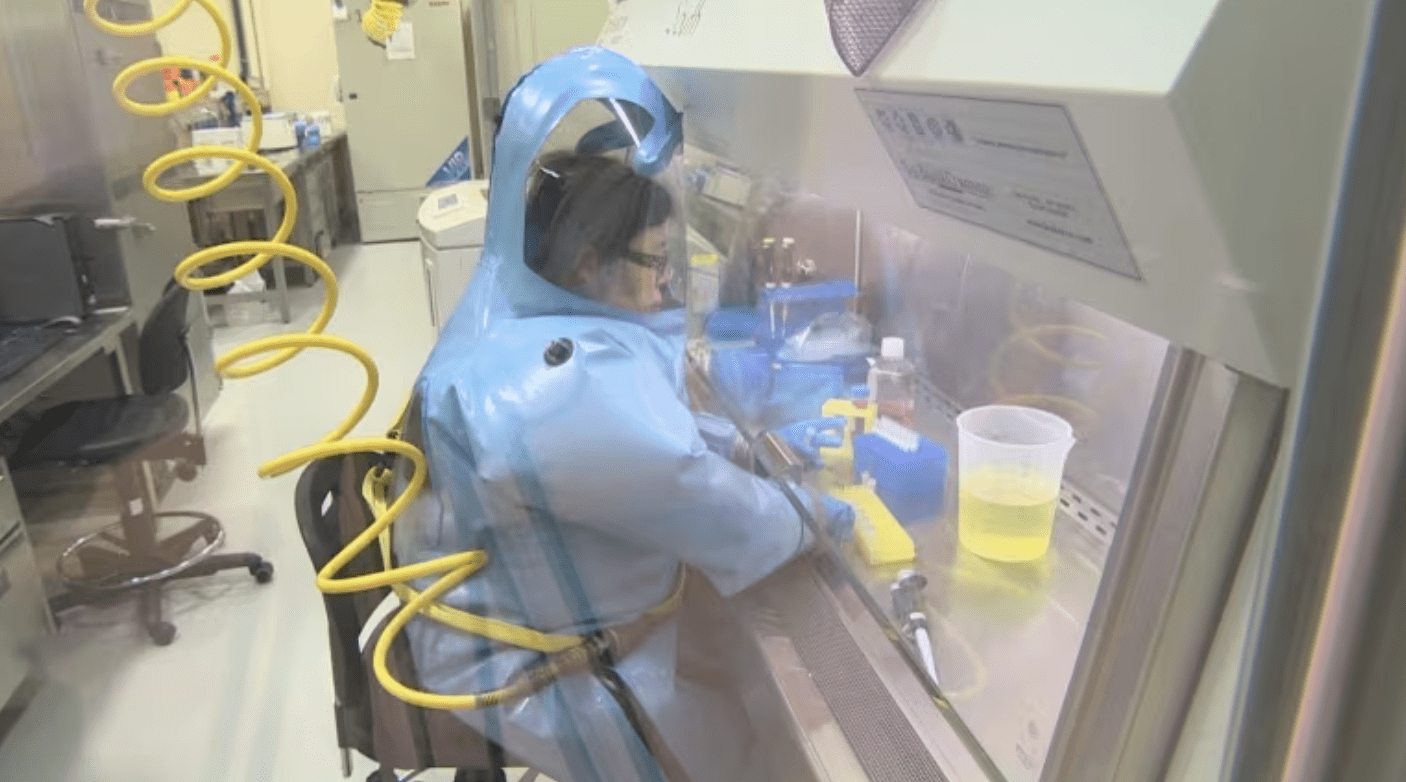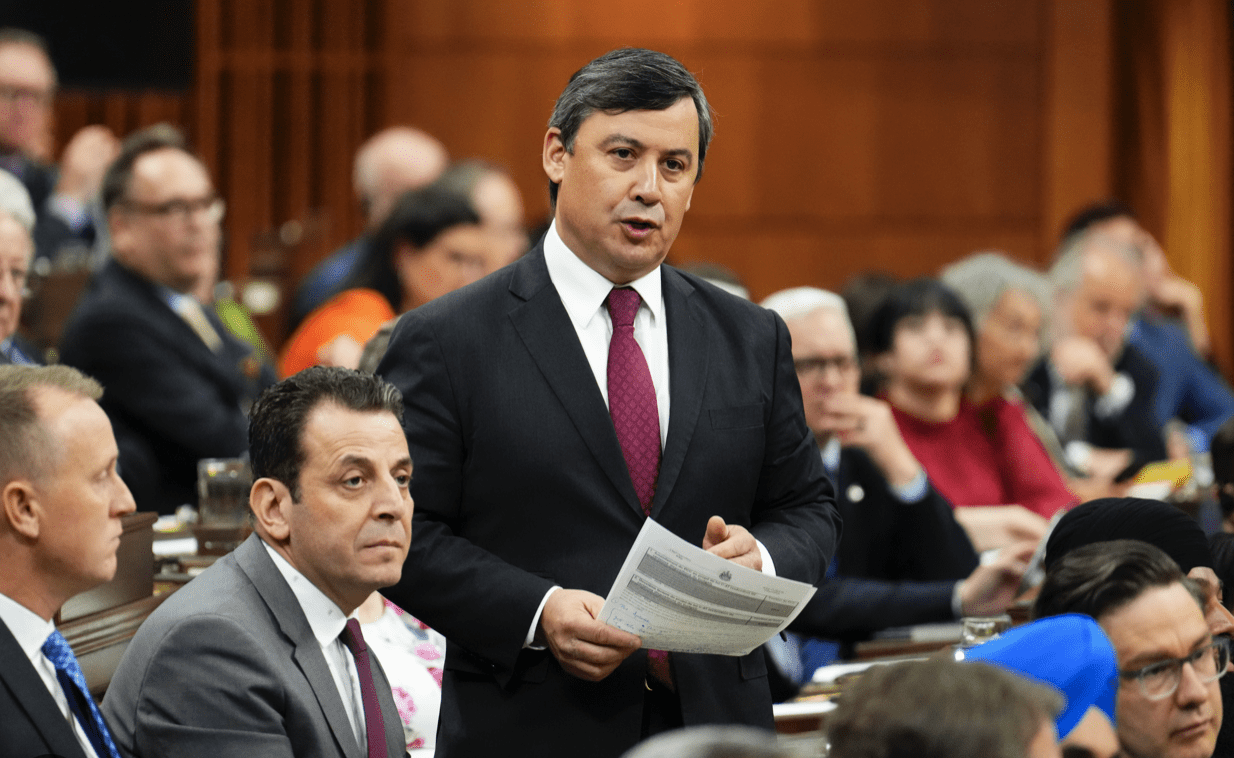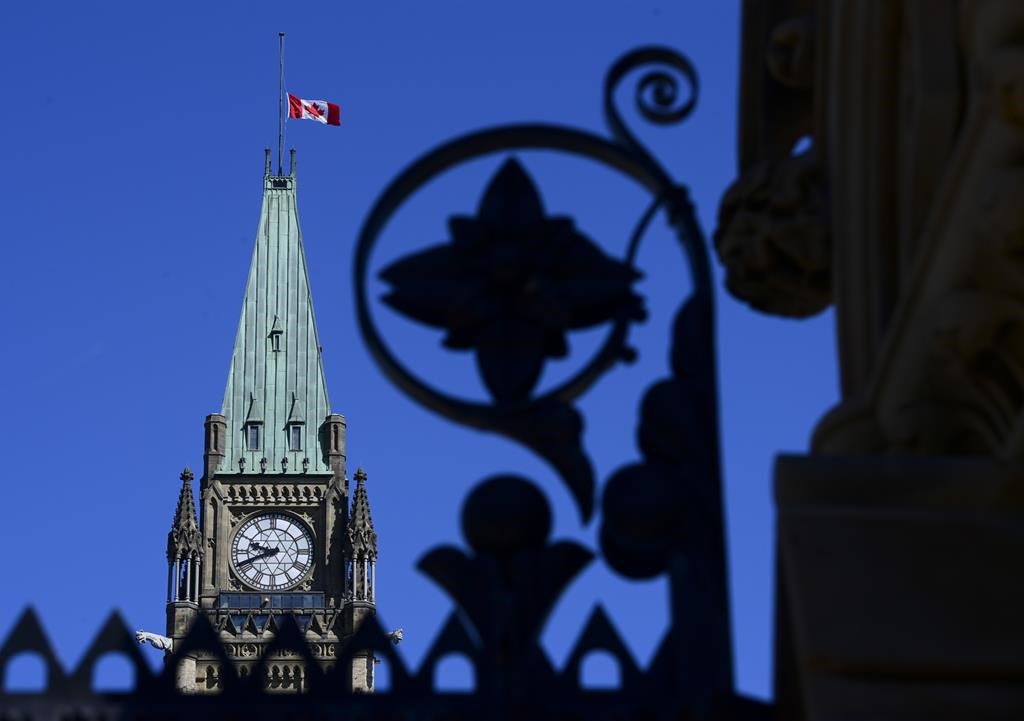This content is restricted to subscribers

The views, opinions and positions expressed by columnists and contributors are the author’s alone. They do not inherently or expressly reflect the views, opinions and/or positions of our publication.

This content is restricted to subscribers
The views, opinions and positions expressed by columnists and contributors are the author’s alone. They do not inherently or expressly reflect the views, opinions and/or positions of our publication.

Most Canadians think differently about political and economic issues. Some prefer an increased role for the state, while others desire smaller government and less intrusion. Some support higher taxes and more public services, while others want lower taxes and more private sector involvement. Some trust the free market economy wholeheartedly, while others are more skeptical. Some believe our country to be more involved in foreign policy matters, while others feel we’re too involved as is.
You get the drill.
When it comes to national safety and security, there has historically tended to be a meeting of the minds. Most Canadians believed the government in charge, be it Liberal or Conservative, was committed to protecting our nation’s borders. That they opposed totalitarian states, rogue nations and terrorist organizations. That they would always defend the cherished principles of liberty, freedom and democracy.
All of this changed soon after Justin Trudeau became Prime Minister.
In March 2016, Stéphane Dion, a former Liberal leader and Trudeau’s first foreign affairs minister, spoke at the University of Ottawa about his government’s approach to international affairs. “The guiding principle that I will follow in fulfilling this mandate is something I call responsible conviction,” he said. Dion claimed his government “shares the same conviction as the previous government, but it assesses the consequences of its chosen method of promoting this conviction differently.”
Trudeau and the Liberals would maintain some policies that former Prime Minister Stephen Harper and the Conservatives championed in office, but would move away from the “disengagement” position. Early foreign policy goals included: a renewed focus on multilateralism and the United Nations, recognizing that severing ties with Russia and Iran had had “no positive consequences for anyone” and needed to be re-opened, promoting the fact that “human activity-induced climate change is one of the worst threats humanity is facing,” and taking a different tactic to fighting the Islamic State of Iraq and the Levant.
Dion was replaced in Feb. 2017 by Chrystia Freeland, who is now the Deputy Prime Minister and Minister of Finance. She was followed by François-Philippe Champagne, Marc Garneau and, most recently, Melanie Joly. Through it all, the ridiculous, obtuse concept of “responsible conviction” has continued to permeate in Liberal-minded foreign affairs. That’s why Trudeau and his ministers have fumbled this file time and time again.
Here are some examples. The Liberals refused to support the Conservative motion that ISIL’s actions should be declared a genocide until the UN report about the Yazidis confirmed the obvious. The Trudeau PMO crafted a eulogy of Cuba’s Communist tyrant Fidel Castro that depicted him as a “remarkable leader” and “larger than life leader who served his people.” Trudeau and his family embarrassed themselves in India by taking photo-ops with costume after costume. Ottawa wasted inordinate amounts of time trying to get a UN security council seat in 2020, and failed. Trudeau has had strained relations with two U.S. Presidents, Donald Trump (Republican) and Joe Biden (Democrat). Canada was left out of the important AUKUS security pact between the U.S., Australia and UK.
What’s been happening with Canada-China relations has been equally abhorrent. This includes Huawei Technologies and the Meng Wanzhou affair, the two Michaels and the PM’s uncomfortable tete-a-tete with Chinese President Xi Jinping at the G20 in Bali, Indonesia.
There’s also the ongoing saga of accusations of Chinese interference in our democratic election process in 2019 and 2021. It’s been a mess for months, including the removal of Liberal MP Han Dong from the party caucus and the short, disastrous stint of former Governor General of Canada David Johnston as an independent special rapporteur.
Look at what’s happened to Conservative MP Michael Chong, too.
In early May, the Globe and Mail’s Robert Fife and Steven Chase published contents of a July 20, 2021 Canadian Security Intelligence Service report. It revealed Canada was viewed as a “high-priority target” by China, and mentioned that an MSS officer had attempted to obtain information about an MP’s relatives “who may be located in the PRC, for further potential sanctions…to make an example of this MP and deter others from taking anti-PRC positions.” Fife and Chase revealed that Chong was the unnamed MP.
Trudeau was asked by reporters about this. “We asked what happened to that information, was it ever briefed up out of CSIS? It was not,” he said on May 3. “CSIS made the determination that it wasn’t something that needed (to) be raised to a higher level because it wasn’t a significant enough concern.” Chong would have none of this. “I have just been informed by the national security adviser that the CSIS intelligence assessment of July 20, 2021 was sent by CSIS to the relevant departments and to the national security adviser in the PCO,” he told Parliament on May 4, “This report contained information that I and other MPs were being targeted by the PRC. This contradicts what the Prime Minister said yesterday.”
When reporters went back to Trudeau, here’s what he said: “I’m not going to go into details on that. I shared the best information I had at the time both to Chong and to Canadians.”
Yeah, sure he did.
Here’s the $64,000 question. Do the Trudeau Liberals truly believe they’re protecting Canada’s safety and security? They may think they are, but the political record tells a very different story.
Michael Taube, a longtime newspaper columnist and political commentator, was a speechwriter for former Canadian prime minister Stephen Harper.
The views, opinions and positions expressed by columnists and contributors are the author’s alone. They do not inherently or expressly reflect the views, opinions and/or positions of our publication.

NDP leader Jagmeet Singh introduced a motion in the House of Commons on Tuesday that called for the Liberal government to replace David Johnston as special rapporteur dealing with election interference. He won’t withdraw from the three-year confidence-and-supply agreement with Prime Minister Justin Trudeau if the latter won’t heed his call, however.
If you’re shaking your head in utter confusion right now, I wouldn’t blame you.
What’s the point of calling for a non-binding motion that has no real meaning, and no specific consequences, attached to it? With a subtle nod to the popular 1990s British sitcom, it’s all about keeping up appearances.
While it’s true that Singh hasn’t been completely mute during the bombshell allegations of Chinese interference in the 2019 and 2021 elections, he also hasn’t been a significant participant. “We don’t want to see any interference in Canadians’ ability to make decisions about their future,” he said in a news conference last November. He also joined the Conservatives and other opposition parties in support of a public inquiry in late February. “The way to stop alleged secret Chinese interference is to refuse to keep their secrets for them,” he said, and a “fully independent and non-partisan public inquiry is the way to shine a light into the shadows.”
Both statements were fine, but hardly revelatory or earth-shattering.
When Johnston recommended against holding a public inquiry on May 23, Singh’s response was rather tepid. The NDP leader called the decision “incredibly disappointing,” and suggested “we firmly believe Canadians would benefit from a fulsome, public investigation that maintains the integrity of our intelligence that must be kept confidential.” He also mentioned “New Democrats will keep pushing for an independent, public inquiry that gets people the answers they deserve and fully restores trust in our elections.”
What caused Singh’s shift from being incredibly disappointed with Johnston to calling for his head on a silver platter in one week’s time?
Some have suggested the news involving Johnston’s lead counsel, Sheila Block, could have had some impact. Democracy Watch revealed last week she had donated $7,593.38 to the federal Liberals between 2006-2022. Of the 19 separate political donations that were identified under “Sheila Block” and “Sheila R. Block,” none of them went to any other party.
Did this controversy change Singh’s opinion? It’s possible.
A more likely explanation is NDP MP Jenny Kwan recently being informed by CSIS that she was being targeted by the Chinese government. “What CSIS confirmed with me is that I was a target and I continue to be a target,” she said in the House of Commons foyer on May 29. “They use the term ‘evergreen’ meaning that I will forever be targeted.” Singh also spoke to reporters and made this assessment, “I’ve been very clear in not attacking Mr. Johnston personally and I’ve maintained that, but…It is very clear that the appearance of bias is so high that it erodes the work that the special rapporteur can do.”
What’s happened to Kwan is awful, of course. Singh has every right to be frustrated. Yet, he didn’t speak out as firmly when Conservative MP Michael Chong and former Conservative leader Erin O’Toole revealed the very same thing after their meetings with CSIS.
Therein lies the problem.
Singh’s newly-formed doubts about Johnston’s role as special rapporteur on foreign interference may have only materialized due to a caucus colleague, Kwan, getting caught up in this unfortunate situation. It leaves the impression that his political radar doesn’t focus on major controversies affecting Canada if the NDP isn’t involved in them. Even in the dog-eat-dog world of modern politics, where rigid ideology and partisan rhetoric are both understood, this particular stance doesn’t fly.
It’s also concerning that Singh largely ignored (or avoided) the red flags that started to rapidly appear when Johnston was named special rapporteur. Some were known, including the former Governor General of Canada’s association with the Trudeau family dating back to the 1970s and his previous status as a member of the Pierre Elliott Trudeau Foundation. Others were revealed and re-revealed, including Trudeau’s description of his newly appointed special rapporteur as a “family friend” in 2017 and Johnston’s long-term interest in China, including his two daughters having lived there for two years to study Mandarin.
Johnston was far too tied to Trudeau, his family and the matter at hand to be a truly impartial observer. It was always assumed the PM would pick someone he knew and trusted for this padded role, which lacks the political and legal authority to have any meaningful influence or sway. Nevertheless, the PM shouldn’t have chosen Johnston – and Singh, who has helped prop up this minority government, could have spoken out immediately and suggested Trudeau pick someone else.
He didn’t, and that moment has passed. If he hopes to have any meaningful impact in this discussion going forward, he’s whistling Dixie.
Many MPs in the House of Commons laughed uproariously at Singh last December after he exclaimed, “When I’m prime minister, I will keep my promises.” This slip of the tongue made him look ludicrous, out of touch with reality and completely delusional with respect to his political future. The NDP leader’s non-binding motion related to Johnston’s role as special rapporteur is further proof that Parliament’s reaction that day was wholly justified.
Michael Taube, a long-time newspaper columnist and political commentator, was a speechwriter for former Canadian prime minister Stephen Harper.
The views, opinions and positions expressed by columnists and contributors are the author’s alone. They do not inherently or expressly reflect the views, opinions and/or positions of our publication.

This content is restricted to subscribers
The views, opinions and positions expressed by columnists and contributors are the author’s alone. They do not inherently or expressly reflect the views, opinions and/or positions of our publication.

Become a subscriber today!
Register
Become a subscriber today!
Register
Become a subscriber today!
Register
This content is restricted to subscribers
The views, opinions and positions expressed by columnists and contributors are the author’s alone. They do not inherently or expressly reflect the views, opinions and/or positions of our publication.

Become a subscriber today!
Register
Become a subscriber today!
Register